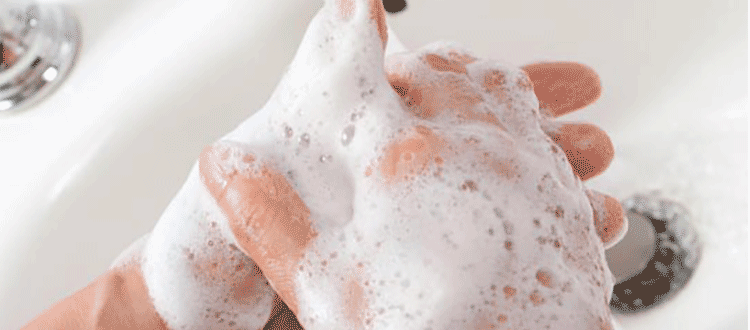FDA Moves to Take Triclosan out of Hospitals
 |
|
Alex Scranton |
Remember back in 2016 when the FDA announced they were banning triclosan in consumer hand soaps and sanitizers? The FDA made the argument that the health risks of exposure to triclosan were not worth any possible benefits of killing germs on your hands with this harsh chemical. Well, in December, the FDA made a similar ruling – this time for hand soaps and sanitizers marketed specifically for use in healthcare. This is a bigger deal. Because while there are no studies showing that killing germs on your hands at home is keeping the average person healthier than just using soap and water — there is certainly logic to the idea that keeping healthcare workers hands clean and sterile would improve patient outcomes by preventing the spread of infections.
And it’s not that the FDA isn’t open to this idea, it’s just that, surprisingly, they cannot find the data to prove it.
Nearly Three Years Later, Data Still Missing
Back in 2015, the FDA did their review looking at triclosan and over 20 different chemicals used in hand soaps and sanitizers in healthcare and just couldn’t find enough publicly available data on either the safety of these chemicals or their effectiveness at killing germs.[1] The FDA realized that most of these antibacterial chemicals had previously been designated as GRAS (Generally Regarded As Safe) and GRAE (Generally Regarded as Effective) decades earlier based on very limited and incomplete data. Given more recent science on the potential hazards of these chemicals, and on the detection of these chemicals in humans through biomonitoring, the FDA realized that they no longer felt they had sufficient information to justify these chemicals as safe (GRAS) and effective (GRAE). So, in 2015, they asked the manufacturers to supply them with that necessary safety and efficacy information.
So here’s the interesting part … It is two and a half years later, and the manufacturers have still not been able to supply the data the FDA is looking for.
What About Other Antibacterial Chemicals?
In response to the lack of data, the FDA affirmed their decision in December, to ban triclosan and a few dozen other rarely used antibacterial chemicals from use in hospitals.[2] For six other widely used antibacterial chemicals (including two types of quaternary ammonium chlorides “quats”), alcohol, povidone/iodine and others, manufacturers requested and have been granted a year-long extension to supply the needed experimental studies. The key issues industry is working on, initially, are experiments to help quantify how much of the antibacterial chemical is absorbed through your skin when you wash/rub your hands; and experiments on how effectively products containing these chemicals are actually killing germs of concern on your hands.[3] After this is done, they may tackle the necessary research on carcinogenicity, reproductive harm and endocrine disruption that the FDA also noted were missing from publicly available literature.[4]
Without Data, How Are Manufacturers Justifying Safety and Efficacy?
Can manufacturers be blamed for not readily having this data available for the FDA? Technically, they have never been asked for it by the FDA, in this format before. And no doubt, the industry has argued that designing and conducting studies of this kind takes both time and resources. But, on the other hand, what the FDA is asking for what seems like some pretty basic information a manufacturer would want to have before putting a product on the market. And these chemicals have been manufactured in products for decades! It begs the question of how exactly the manufacturers have been justifying the safety and efficacy of these products for themselves.
The American Cleaning Institute, (an industry trade association) claimed in their December 2017 press release:
“The active ingredients used in healthcare antiseptic drug products have very favorable benefit/risk ratios demonstrated over many years of extensive use. These products clearly save lives by reducing bacterial transmission that can cause infections in healthcare settings…In addition, a robust body of research supports the safety of active ingredients used in healthcare topical antiseptic products.”[5]
But I have a few questions for the ACI, like:
- How robust can it be when the FDA noted enough important data gaps to file a formal request for more data?
- How can you state the benefits outweigh the risks when you can’t even provide specific data showing that the product effectively kills germs on your hands when you use it?
- How can you judge the risks when you don’t know how much of the active chemical is actually getting into healthcare workers bodies when they use a product containing it — especially when you don’t even know if the chemical, once it enters your body, might cause cancer, endocrine disruption or reproductive effects?
- What are the standards the manufacturers have been using to determine that their products are safe and effective to put on the market?
It is well past time for manufacturers to explain their confidence in their products in the apparent absence of data to support it. While we appreciate that new research is being conducted now, we are certainly concerned that manufacturers have allowed decades of use of these chemicals in products without this simple and vital information.
[1]https://www.regulations.gov/document?D=FDA-2015-N-0101-0001
[2]https://www.fda.gov/Drugs/DrugSafety/InformationbyDrugClass/ucm445062.htm
[3]https://www.regulations.gov/document?D=FDA-2015-N-0101-1349
[4]https://www.regulations.gov/document?D=FDA-2015-N-0101-0001
[5]http://www.cleaninginstitute.org/aci_welcomes_fda_rule_on_healthcare_antiseptics/




It’s so great that this is finally coming around to the medical community. As a physical therapist who has worked in many settings, I always find it odd that medical facilities and staff are often the worst offenders of things we know to be harmful and, in this case, not helpful. It would be great if we could also get hospitals to also get rid of artificial fragrances in their cleaning supplies and room fresheners. So much safer for patients and staff.
The last time I went to a physical therapist she told me I wasn’t breathing and got frustrated because I couldn’t take “big cleansing breaths”. Well, I have MCS and between the fragrance in the rest room, the fragrance at the front desk, the fragrance in whatever they clean their tables with, and the fragrance in their linens, my body was telling me “don’t breathe!” I can’t have a PT come to my home because of toiletry fragrances and the infectious fragrances in the new highly scented laundry products (I consider them “infectious” because they transfer from one persons clothes to another’s possessions, you can’t get rid of them, and you can die from them!). When I needed surgery I couldn’t go into the registration office because of all the chemicals on the person. I told her from outside her office that I have MCS and could she make sure the nurses knew I needed whoever cared for me to be fragrance free. The nurse handed me the strongest fragranced body wipes I have ever encountered. I refused them and told the anesthesiologist I was afraid I would vomit and aspirate when I was unconscious. Fortunately, she understood..